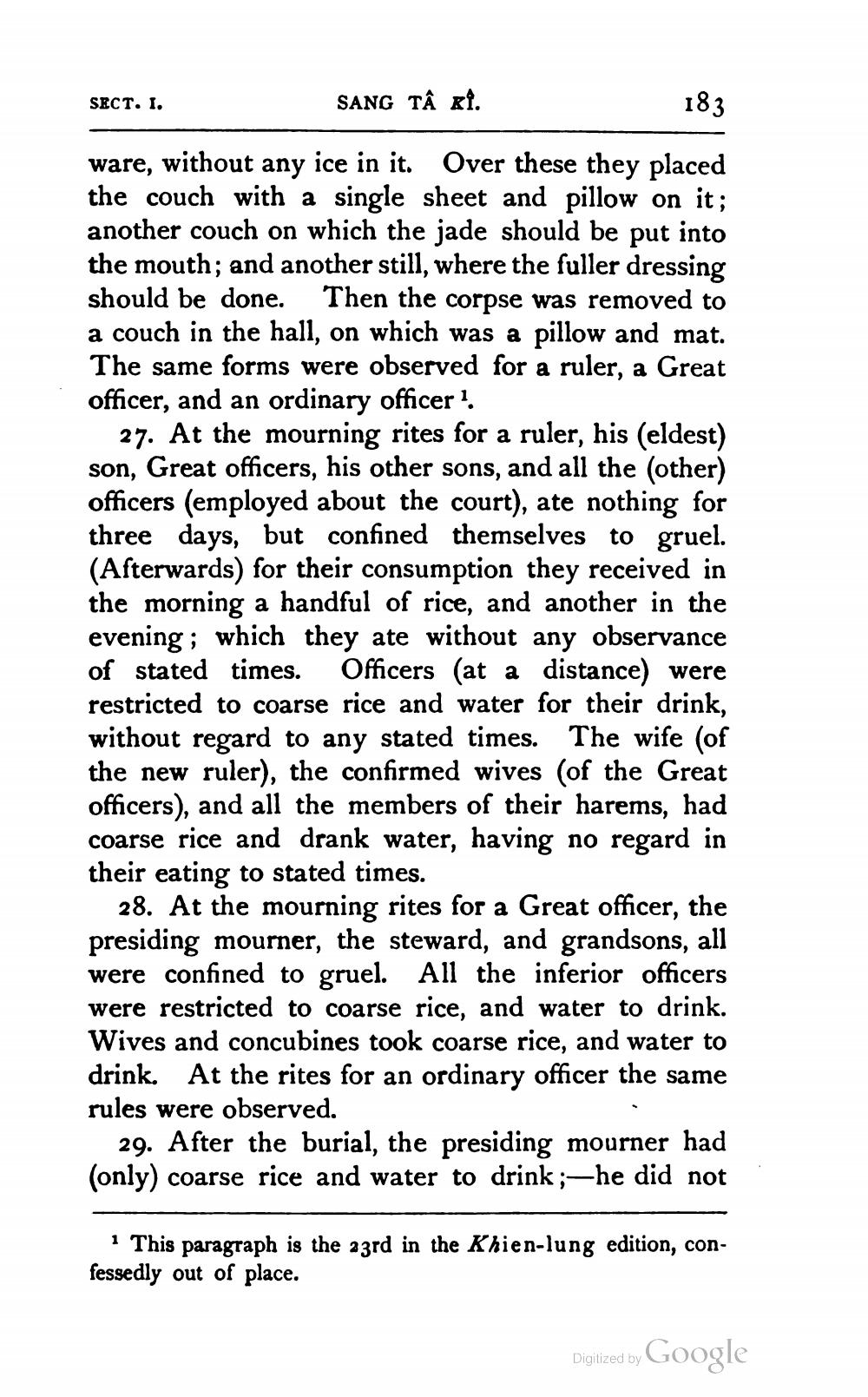________________
SECT. I.
SANG TA KỲ.
183
ware, without any ice in it. Over these they placed the couch with a single sheet and pillow on it; another couch on which the jade should be put into the mouth; and another still, where the fuller dressing should be done. Then the corpse was removed to a couch in the hall, on which was a pillow and mat. The same forms were observed for a ruler, a Great officer, and an ordinary officer ?
27. At the mourning rites for a ruler, his (eldest) son, Great officers, his other sons, and all the other) officers (employed about the court), ate nothing for three days, but confined themselves to gruel. (Afterwards) for their consumption they received in the morning a handful of rice, and another in the evening; which they ate without any observance of stated times. Officers (at a distance) were restricted to coarse rice and water for their drink, without regard to any stated times. The wife (of the new ruler), the confirmed wives (of the Great officers), and all the members of their harems, had coarse rice and drank water, having no regard in their eating to stated times.
28. At the mourning rites for a Great officer, the presiding mourner, the steward, and grandsons, all were confined to gruel. All the inferior officers were restricted to coarse rice, and water to drink. Wives and concubines took coarse rice, and water to drink. At the rites for an ordinary officer the same rules were observed.
29. After the burial, the presiding mourner had (only) coarse rice and water to drink ;—he did not
* This paragraph is the 23rd in the Khien-lung edition, confessedly out of place.
Digitized by Google




